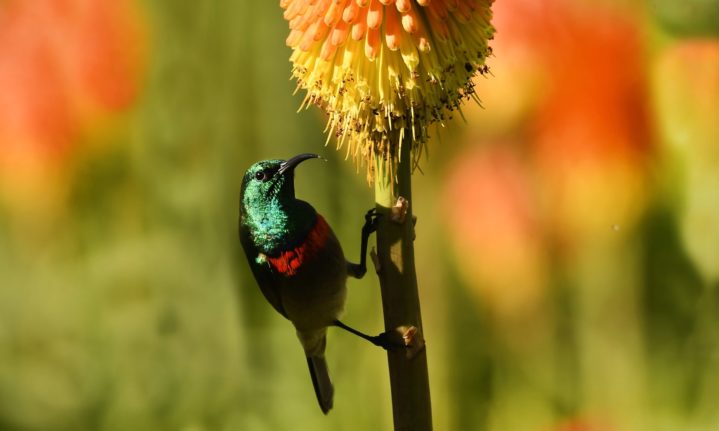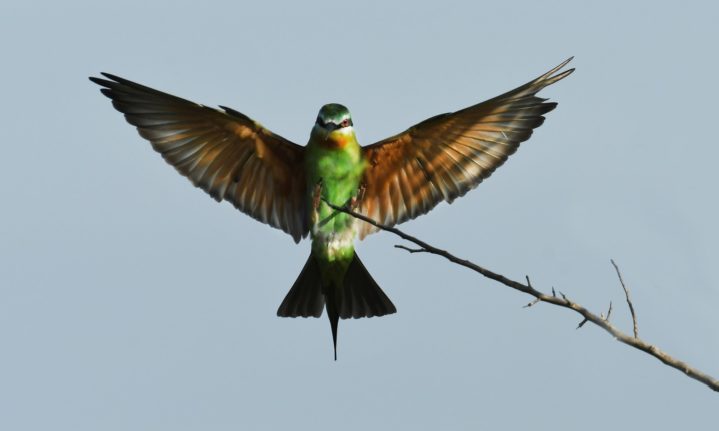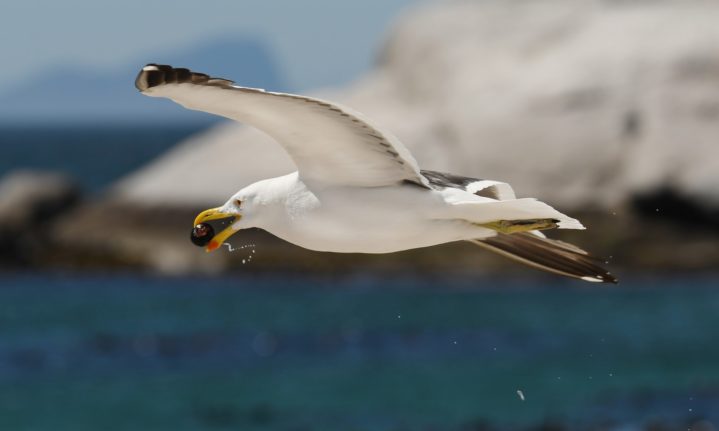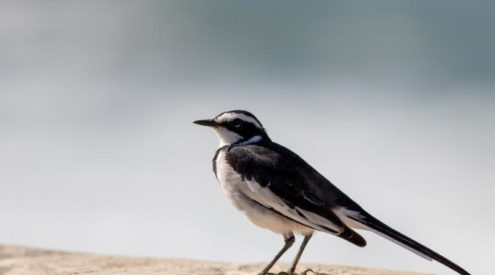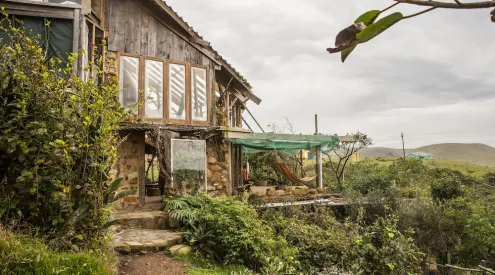The radio crackles into life. ‘We have a visual of two sub-adult male lions, walking east along Duma wall.’ Daryl Dell reaches over, and turns it off.
A strange thrill this, ignoring a lion sighting. But today we are birders, and that is what birders do. Riveted by a rustle, a moving shadow, a trilling from the undergrowth.
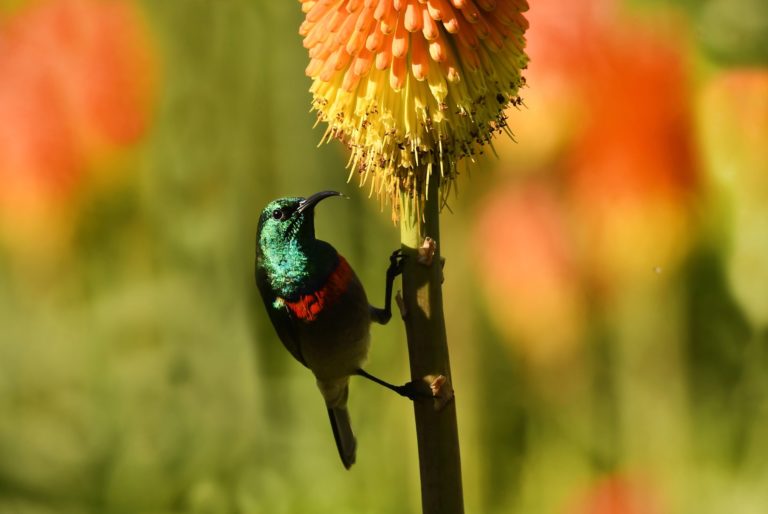
‘Hear that?’ Daryl cocks his head to one side, mimicking the high-pitched “tet-tet-tet-tet”. A pink-throated twinspot. We know this, because Daryl can identify every song in the sweet twittering that surrounds us, reeling off common and Latin names, breeding habits, migration routes, preferred habitats. A walking-talking field guide, and one of South Africa’s top 10 birders, as listed on ebird.org.
He lifts his binocs again, sweeps the forest floor, searching for a visual. ‘There!’ he whispers. ‘Can you see it? To the left of that… Shucks, it’s gone.’ He turns around. ‘Keep looking? Or keep going?’ It would be a grand sighting: its black little pot belly painted in large white spots; crown and wings coated a rich olive-brown; face and chest dusted in eyeshadow pink. But the whole of Phinda awaits – a 29 866-ha tapestry of savannahs, woodlands, wetlands, forests, mountains. ‘Keep going?’ I suggest tentatively.
‘If we’ve heard a new species, can we add it to our list?’ one pipes up.
Daryl grins. Birders are notoriously competitive. ‘Look, if the idea is to grow your list as quickly as possible, then hearing a bird can definitely count.’ The engine rumbles to life. ‘But personally, if I haven’t seen it, it doesn’t make mine.’
Whether you can add a bird to your list based on sight or call is up to you, but it’s the first rule of birding: make a list.
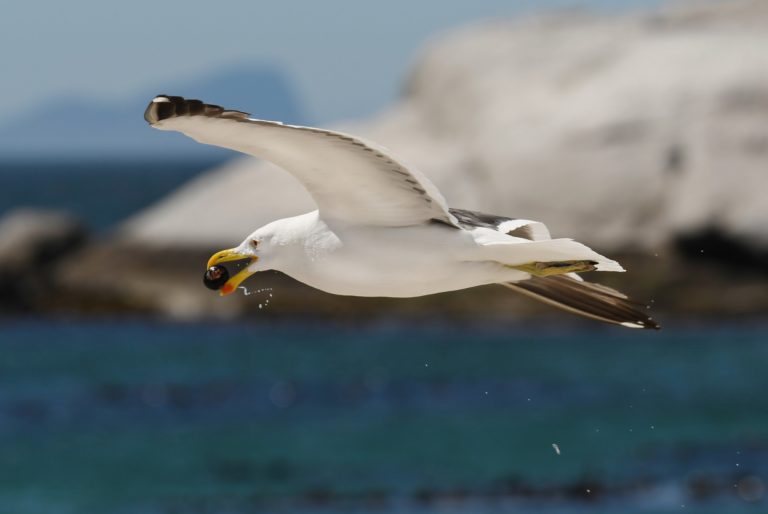
Start a “life list”
This is a list of all the species you have ever seen. The minimum number of species to be seen before you can be included on the ‘South Africa Listers Club’ is 300). Tip: The largest online birding community is ebird.org, with more than 100 million bird sightings contributed annually by eBirders around the world.
Invest in a pair of binocs
Just observing the birds in your immediate environment is a great start but for most, the connection happens when you are able to study birds through a pair of binocs.
Tip: Ideally you want an 8×42 or 10×42. If money is no object, don’t fanny about – Swarovski is the top choice not least due to their investment in all things birding, including the community birders. You can pick up a Bushnell for around R2 500 but for long-term investment get a Vortex – guaranteed for life, with great after-sales service; available for around R12 000.
Get a guidebook or app
Tip: Sasol Birds of Southern Africa 5th Edition or the Roberts Bird Guide – both books and apps are excellent, as is BirdPro. Useful, though not essential, is a camera to help identify fleeting sightings.
Find the closest birding hotspots
Tip: Visit gobirding.birdlife.org.za for more than 400 birding sites, 50 local guides and 60 birding accommodations. It’s a one-stop, free-access portal.
Join a birding club or tour
TIP: Visit birdlife.org.za or check out rockjumperbirding.com for scheduled birding trips.
A version of this article appeared in the January 2023 print issue of Getaway
Words by Pippa de Bruyn
Photographs: Darryl Dell
Follow us on social media for more travel news, inspiration, and guides. You can also tag us to be featured.
TikTok | Instagram | Facebook | Twitter
ALSO READ: Twitchers will love these im-peck-able spots in the Berg River region









